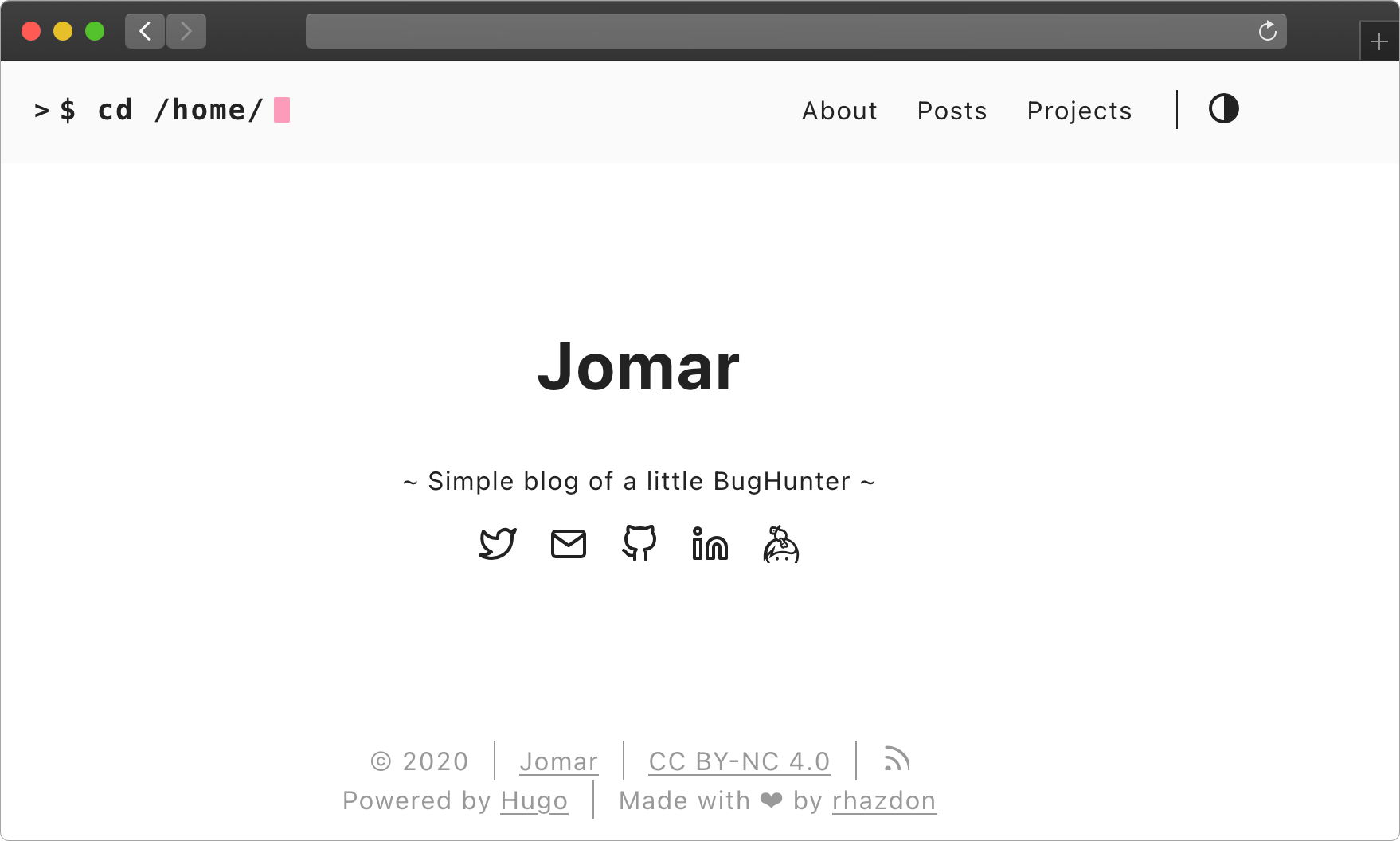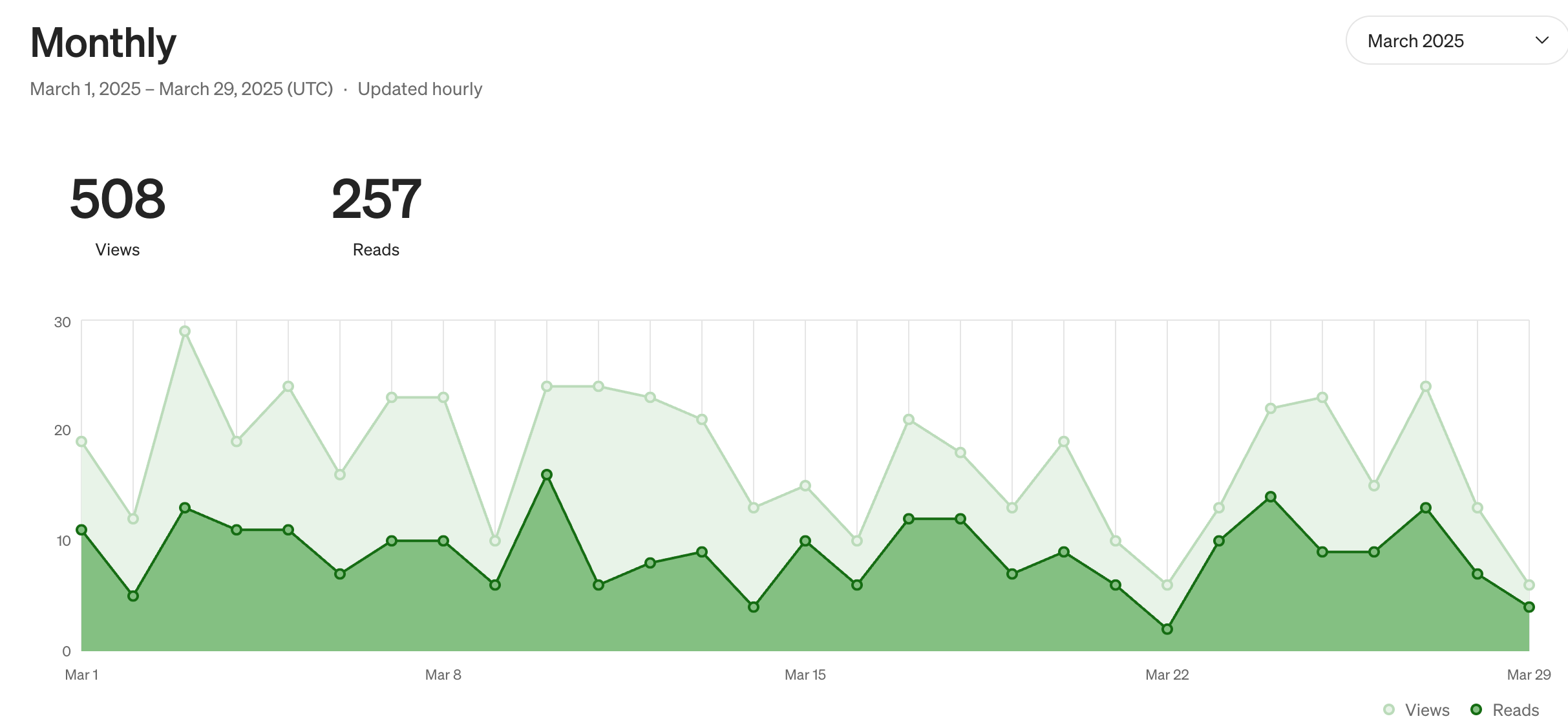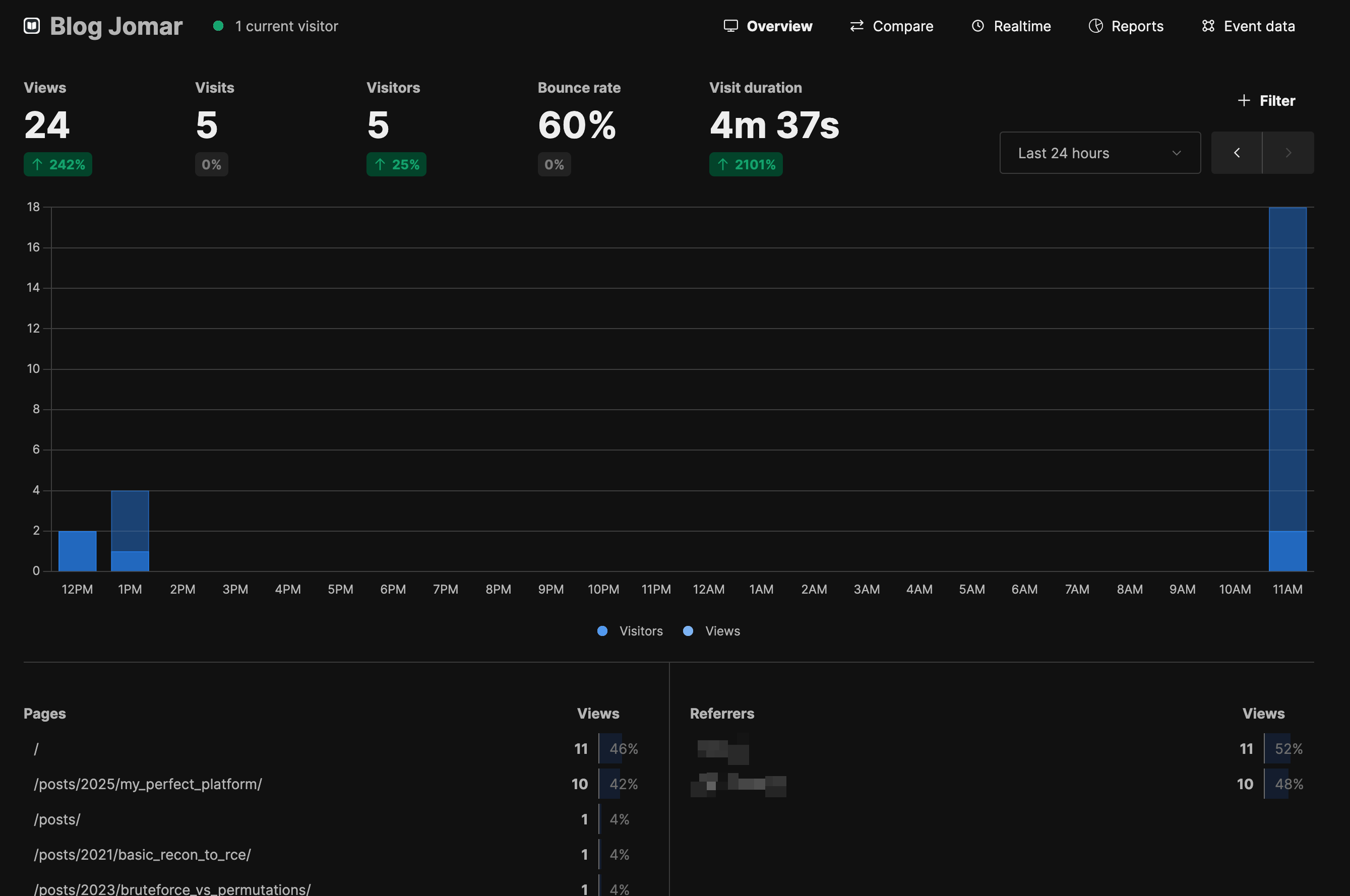Blogging in 2025: My Thoughts
After experimenting with multiple blogging platforms over the past seven years, I’ve finally settled on a solution that works for me. Here’s my journey through the blogging ecosystem and what I’ve learned along the way.
My Blogging Journey
I created my first blog back in 2018. My inaugural article covered setting up a complete authentication system on Laravel 6 - quite technical, but reflective of my interests at the time.
Over the years, I’ve struggled with two main challenges:
- Deciding which platform to use and sticking with it
- Determining a consistent editorial line or theme
This indecision led me through a winding path across various platforms:
- 2018: Self-Hosted WordPress
- 2019-2020: Hugo on GitHub Pages
- 2021: Experiment with Medium
- 2021: Direct publishing via GitHub Pages (without Hugo)
- 2022-2023: Back to Hugo
- 2023-2024: Migration to Substack
- 2025: Full circle back to Hugo with GitHub Pages
The Mistake of Deleting Old Content
One regret I have is not preserving my older articles. I deleted many early posts, believing they no longer aligned with my evolving content direction. This was a mistake. Those articles represented my learning journey and could have provided value to others facing similar challenges.

Today’s Blogging Landscape (2025)
The blogging ecosystem in 2025 offers abundant solutions for content creators with different needs:
Medium & Substack: Hassle-Free Publishing
Platforms like Medium and Substack eliminate many technical headaches from blogging. I tested both because they promised greater content visibility - and when you’re blogging, being read is a primary goal.
The Cost Factor
- Substack: Allows custom domains for a one-time fee of $50
- Medium: Requires $50 annually for the same feature
For a casual blogger like me with just a few articles, Medium’s recurring cost didn’t seem justifiable.
Built-in Analytics
A significant advantage of these platforms is their integrated analytics (available even on free tiers). Self-hosted solutions like Hugo require third-party tools such as Google Analytics to track readership.

Why I Returned to Hugo + GitHub Pages
After all my platform-hopping, I’ve settled back on Hugo hosted via GitHub Pages because:
- Custom Domain Support: GitHub Pages offers free custom domain integration
- Design Control: I wanted more flexibility in my blog’s appearance
- AI-Assisted Customization: With today’s AI tools, modifying existing themes to match my vision has become remarkably simple
Streamlined Workflow
The deployment process with GitHub Pages and GitHub Actions has become extremely straightforward:
- Write a new article in Markdown
- Push to my repository
- GitHub Actions automatically builds and deploys the updated site
This workflow eliminates concerns about:
- Manual deployment steps
- Backups (everything is versioned in Git)
- Security vulnerabilities (no dynamic code like WordPress)
- Server maintenance (static sites are simple)
Analytics Without Intrusion
For visitor tracking, I use a self-hosted instance of Umami - a privacy-focused analytics solution that doesn’t compromise user experience.

Getting Started with Hugo & GitHub Pages
For those interested in trying Hugo with GitHub Pages, I highly recommend checking out this comprehensive guide: Create a Static Blog with Hugo. This article walks you through the entire process from installation to deployment, making it easy even for beginners to get started with this powerful combination.
Recommendations for 2025
Do I recommend Hugo? Absolutely - if you want a personalized blog without excessive technical overhead.
For whom is Hugo ideal? Those comfortable with basic Git operations who desire more design control and don’t mind a slightly steeper initial learning curve.
For pure simplicity: If you just want to focus on writing without worrying about technical details, platforms like Medium remain excellent choices.
The perfect blogging platform depends entirely on your priorities: simplicity, customization, ownership, or visibility. In 2025, we’re fortunate to have options that cover the entire spectrum.